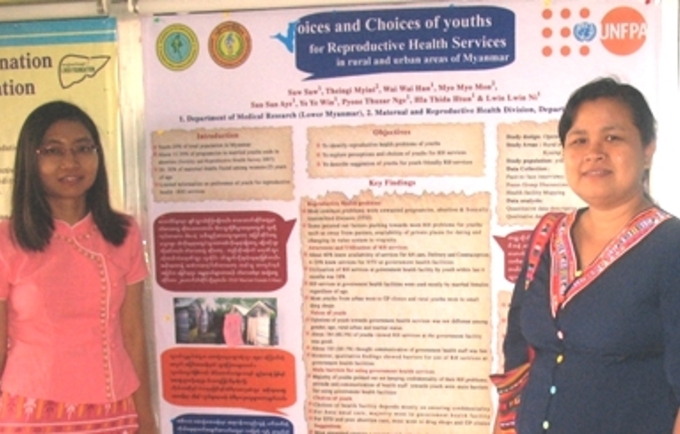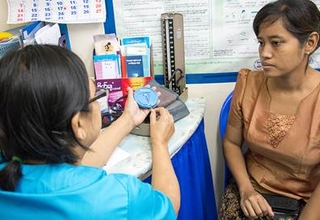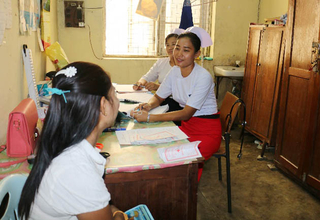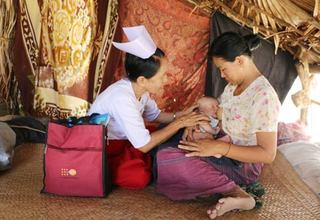A UNFPA supported pioneering and award-winning research on the source, credibility and extent of reproductive health information among youth (aged 15 to 24), was one of the highlights among the 106 papers and posters presented at the 43rd Myanmar Health Research Congress. The Congress took place 5-9th January 2015 in Yangon. Dr Saw Saw was awarded the prize for best research paper and Dr Wai Wai Han was awarded the prize for best research poster. The presented results provided new evidence valuable for all stakeholders who are supporting Myanmar youth in meeting their reproductive health needs and challenges.
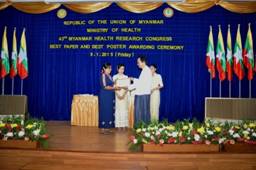
The study named "Is it enough? Source credibility and extent of reproductive health information among the youth in selected townships", is based on face to face interviews and focus group discussions with 305 youth, and implemented by the Department of Medical Research (Lower Myanmar) and the Maternal and Reproductive Health Division by the Department of Health. The study was conducted in Hinthada (Ayeyarwady), Kyang Tong (Shan) and Wun Dwin (Mandalay) Townships in 2013, among both urban and rural youth, aged 15-24. Nearly half of respondents (48.5%) were in the age group of 15-19.
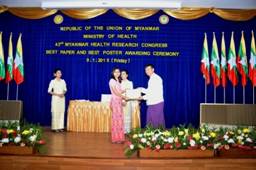
The main results showed that both sexes revealed health workers as the most common and most credible source of information (39.3%). Regardless of marital status, male youths preferred male health personnel as a source of information. Moreover, both sexes mentioned friends as the second most frequent source of information (17.7%), but at the same time gave them low credibility as a source of RH information. Furthermore, most of the respondents know more about contraception than about abortion and STIs/RTIs, among whom married males from both urban and rural areas and married females (only urban) were the most knowledgeable. Unmarried rural females mostly had no knowledge about reproductive health information. Worthy of special attention was the fact that types of contraceptive methods were known by most respondents. However, knowledge on the side effects, advantages and disadvantages of different contraceptive methods, transmission and prevention of STIs/RTIs and danger signs of abortion, was low. Radio was one of the channels used for publicising information. However, “Our research shows that in rural areas, the youth is switching the radio off when health information is on the programme in order to save battery”, Wai Wai Han explained at her presentation why new approaches in reaching out to rural youth in remote areas are needed.
Alongside the presented papers, 32 research posters were displayed and 11 symposiums and 2 medical talks were part of the agenda. The focus on this year’s health research congress was on health services in the fields of maternal, infant and child health, malaria, TB and HIV. Special attention was given to young people, aligning with the recommendations for a stronger focus on young people at the UNFPA supported Myanmar Family Planning Best Practices Conference held in August 2014, which recommended (1) developing youth-friendly service delivery guidelines for both public and private sector providers; (2) launching a hotline for young people to access information; (3) training additional peer educators at the community level; and (4) making more educational materials locally available.
UNFPA will strategize and integrate the presented results in their Adolescent Sexual and Reproductive health programming through, for example, strengthening the capacity development of health workers, and is calling on all stakeholders and relevant partners to focus on giving accurate and youth friendly ASRH information and much needed adolescent SRH services. Research on reproductive health related issues on Myanmar youth is to be supported as updated and correct data in the field of youth and reproductive health is limited and urgently needed.
To see interviews with the award winners visit http://myanmarinternationaltv.com/news/healthcare-capacity-best-research-awards
